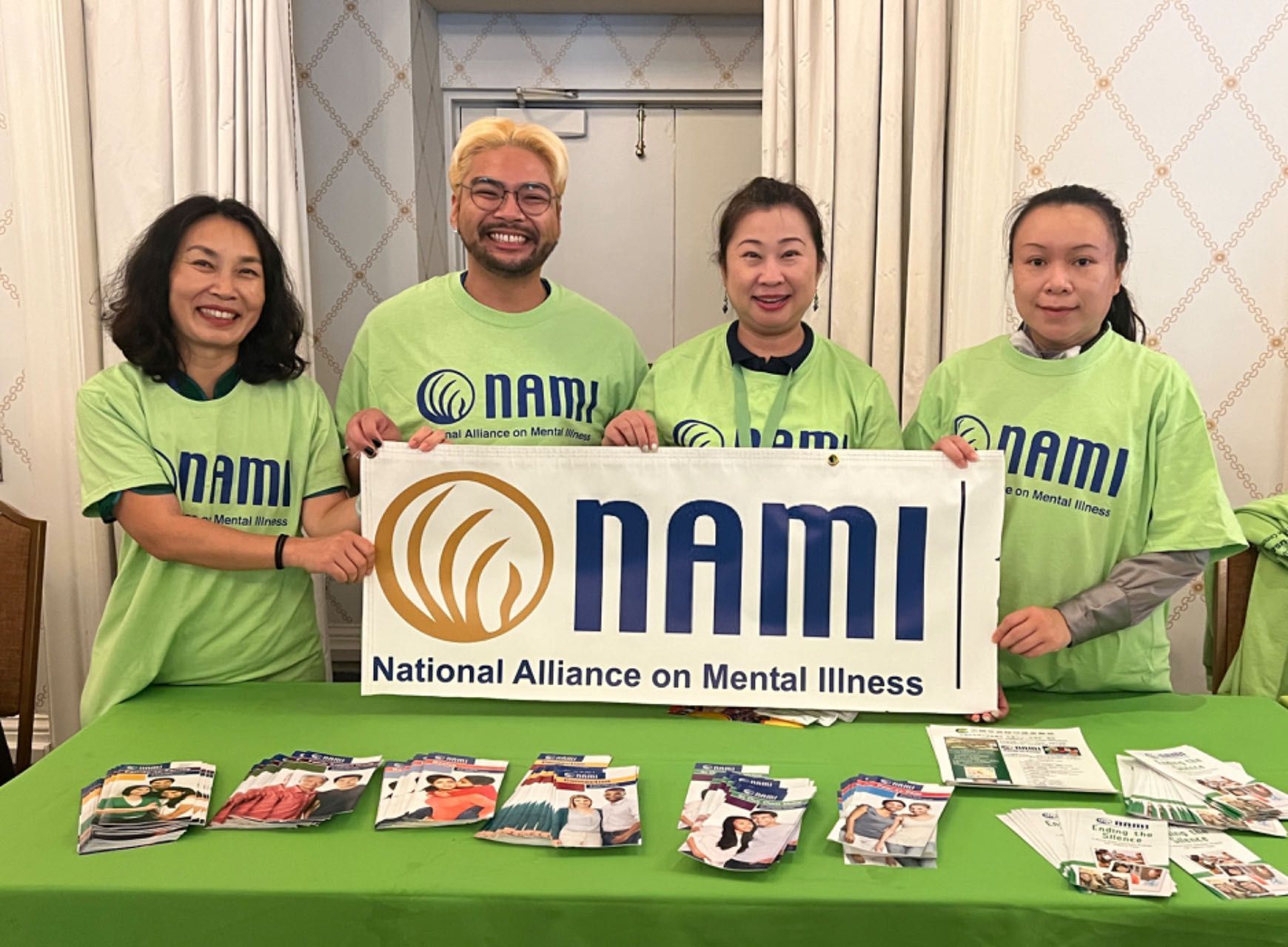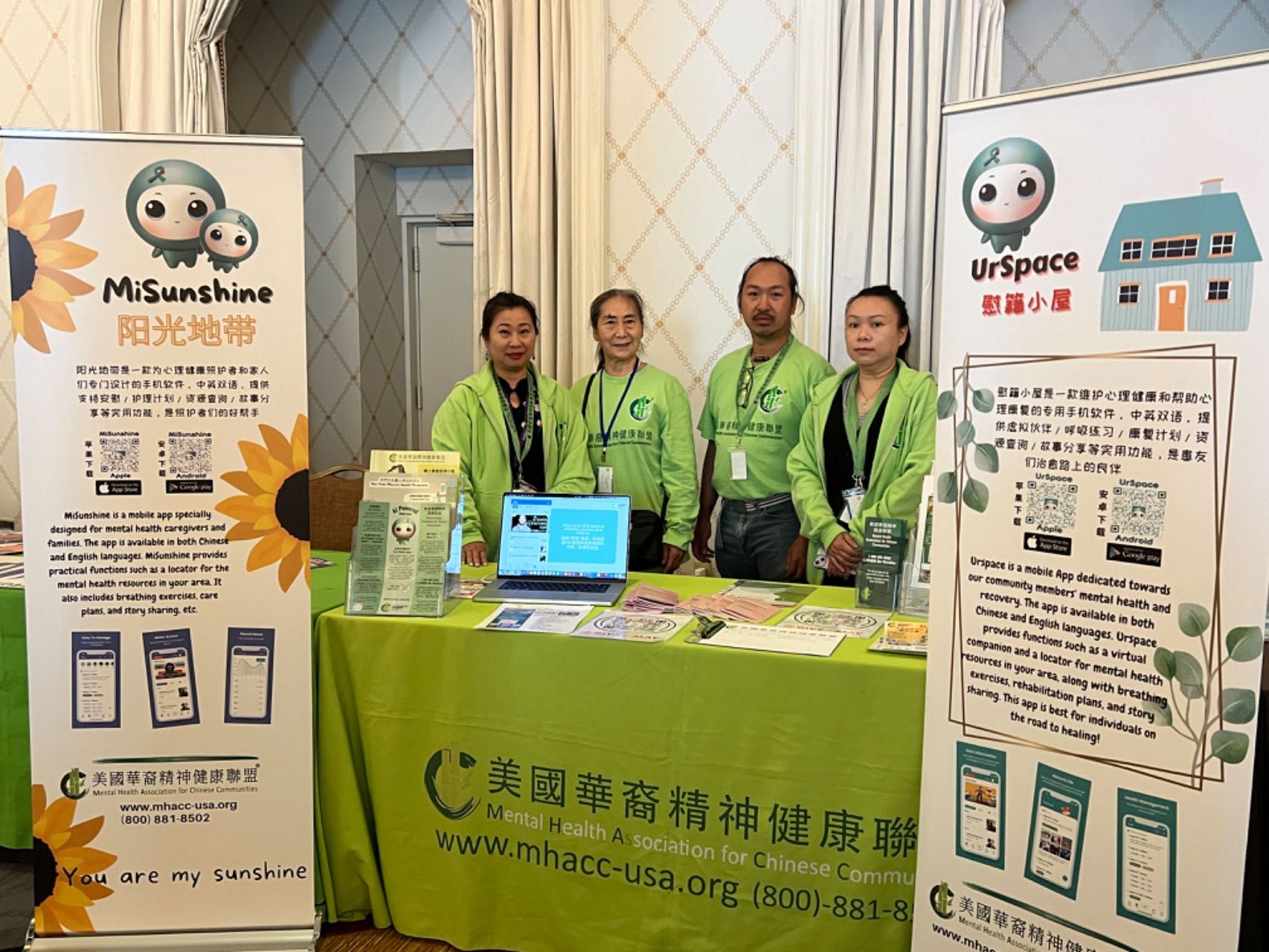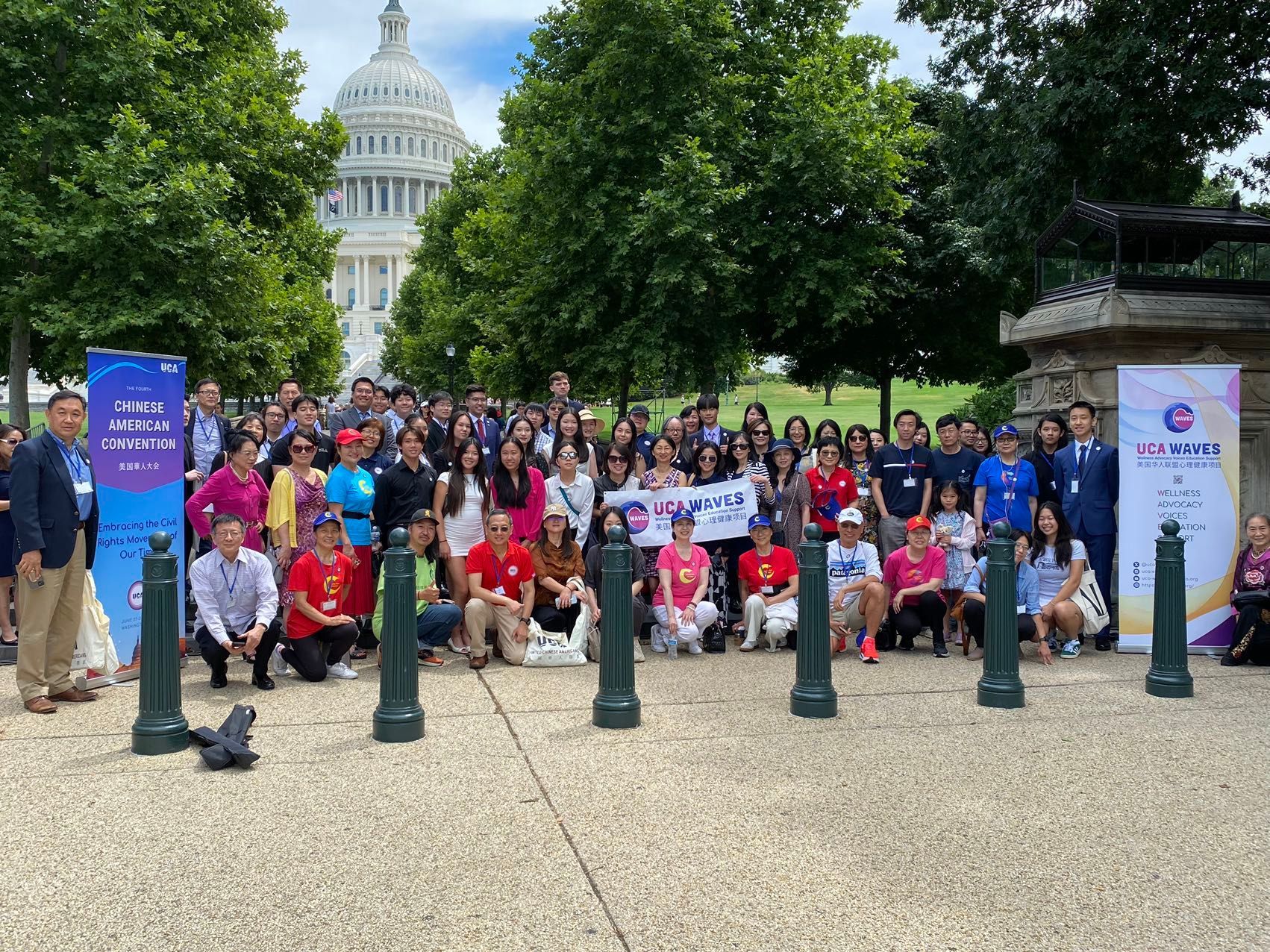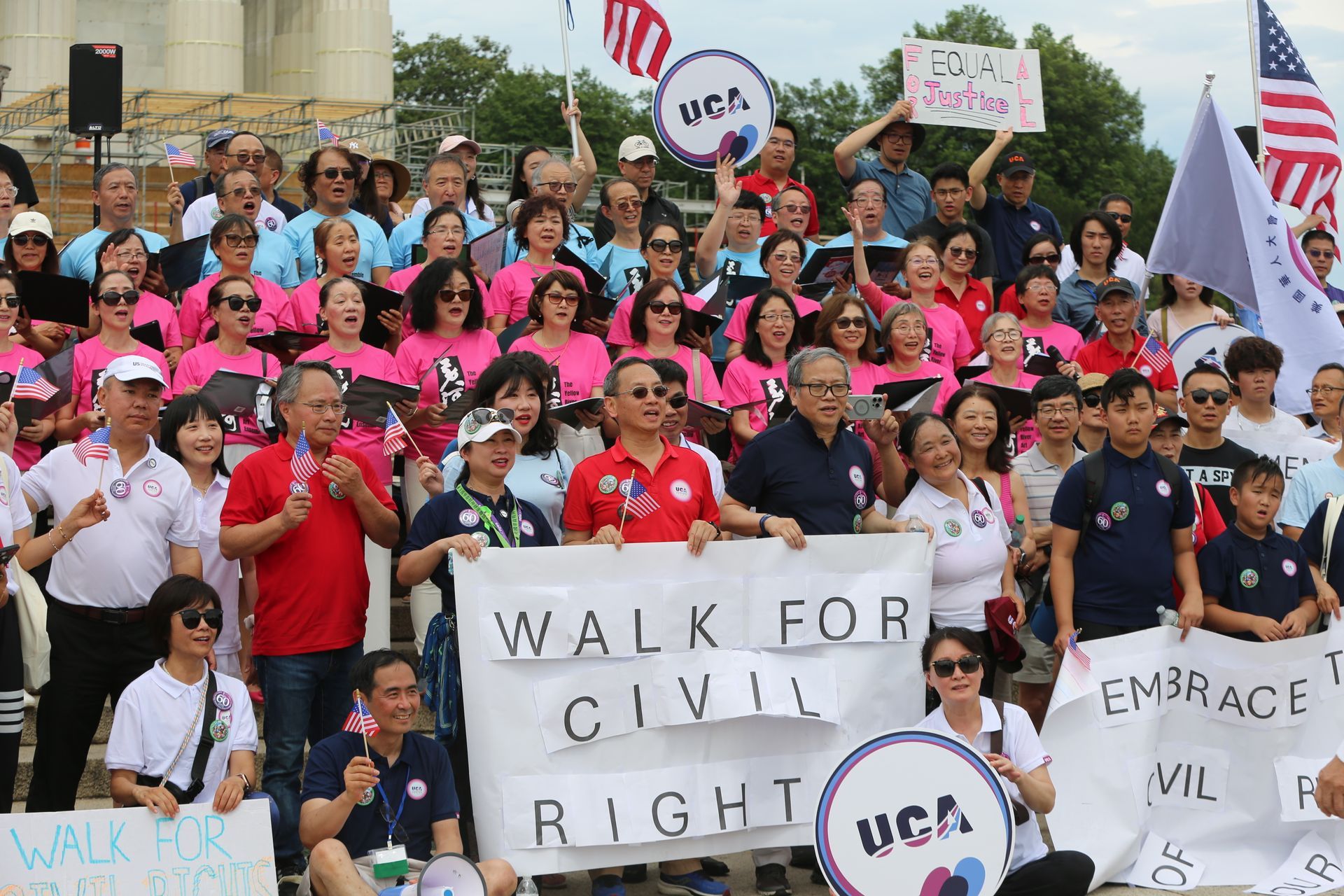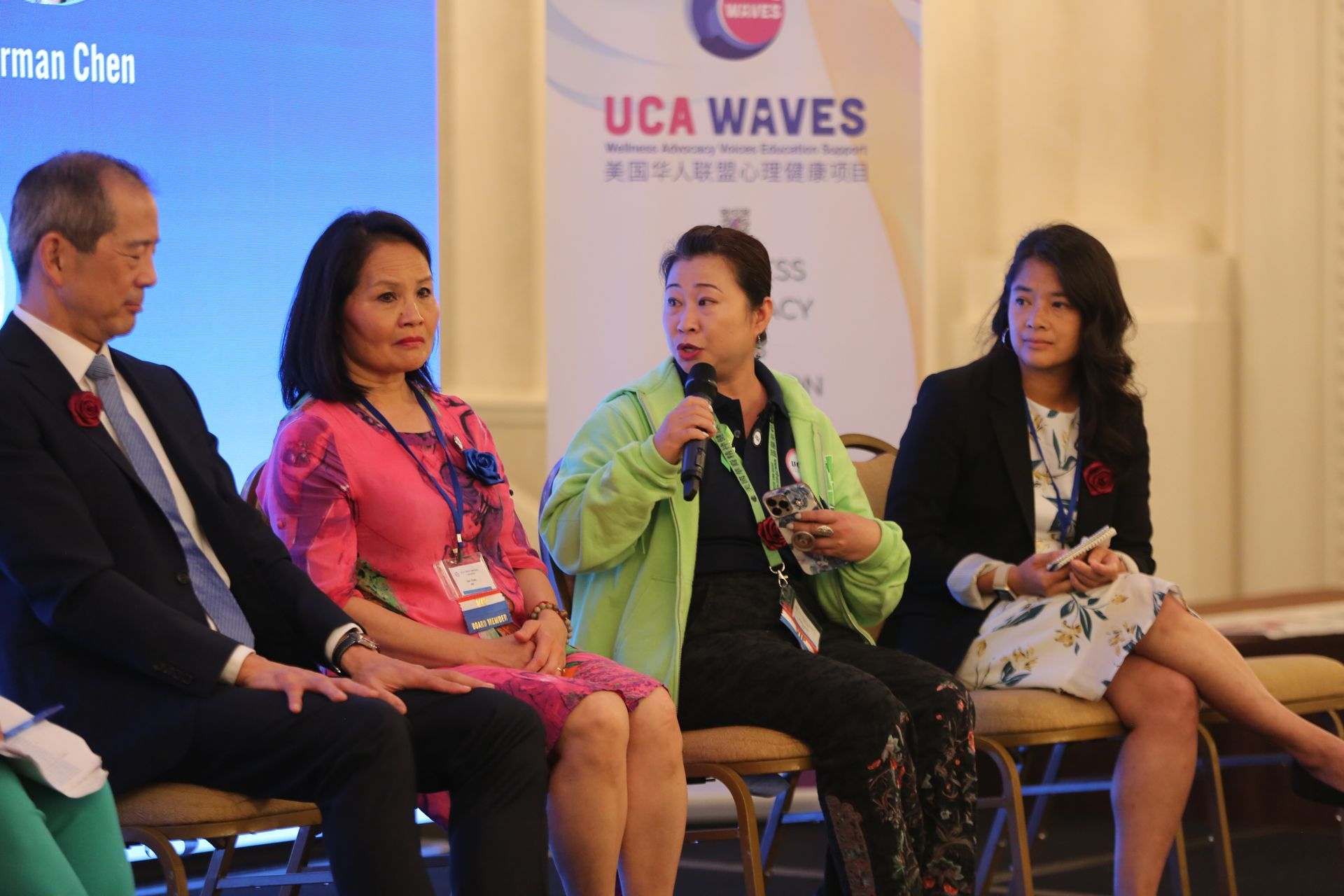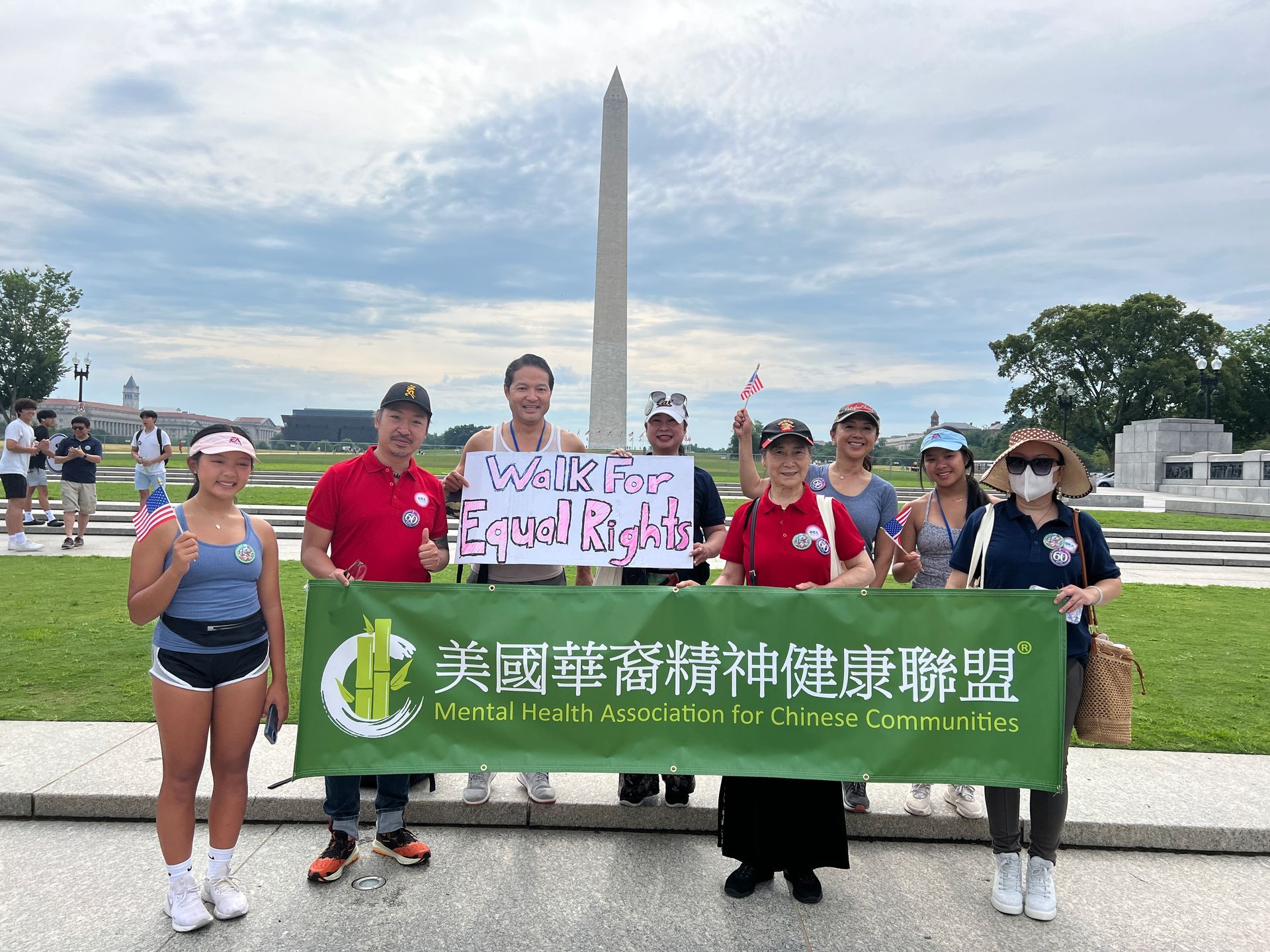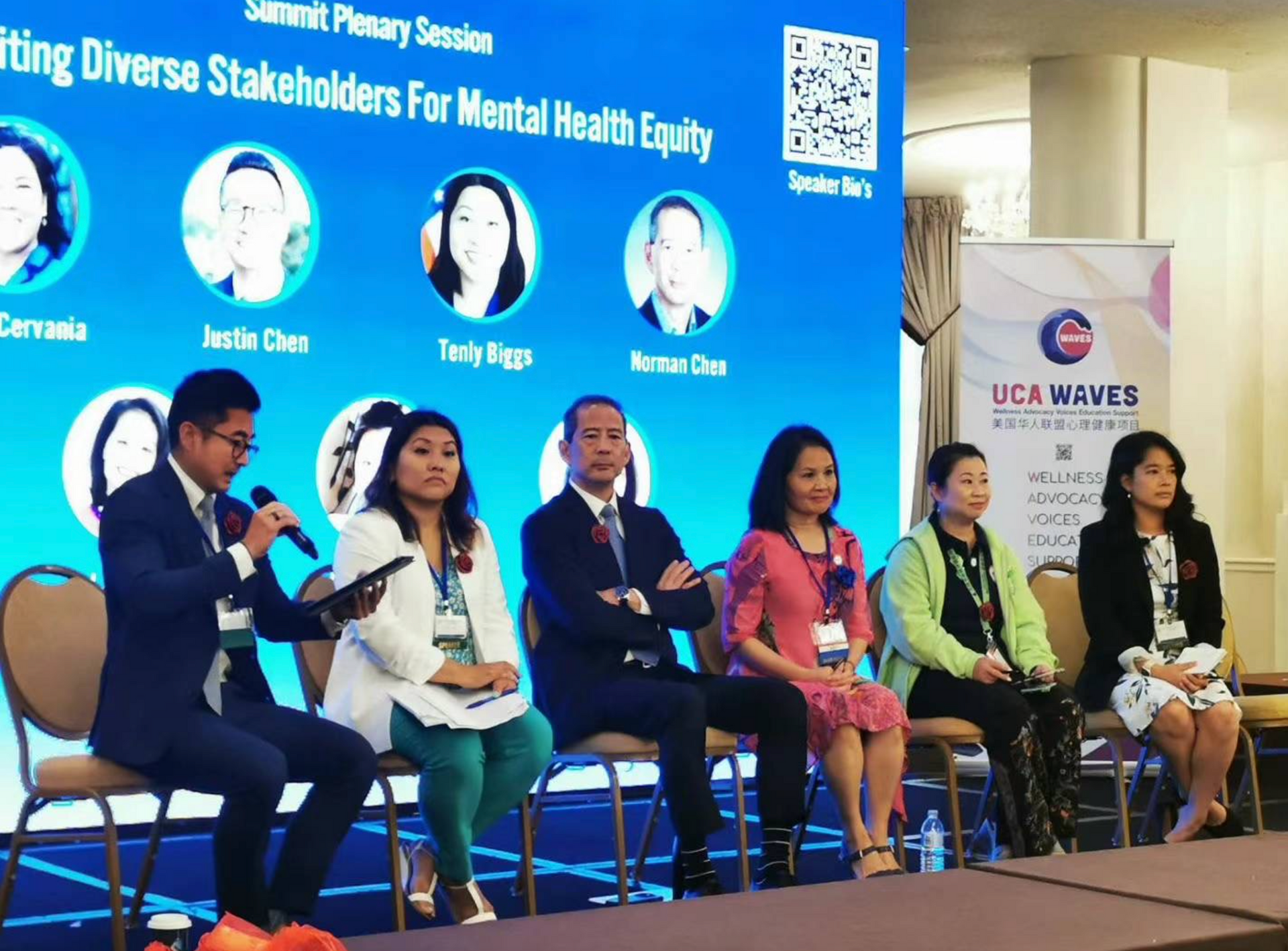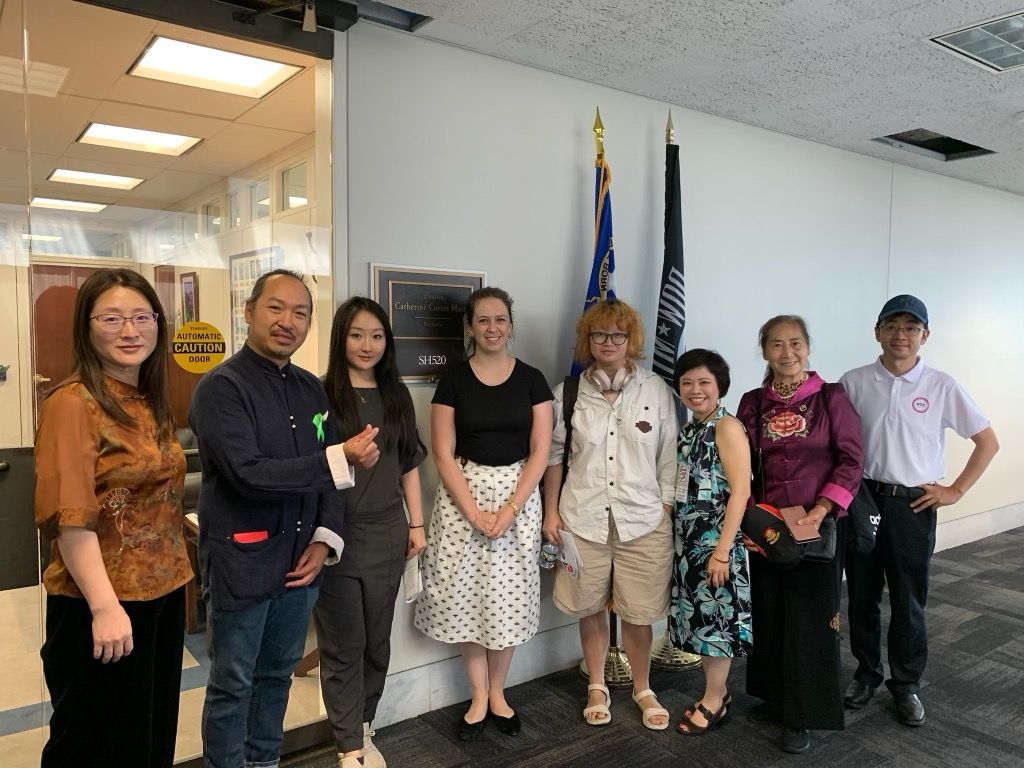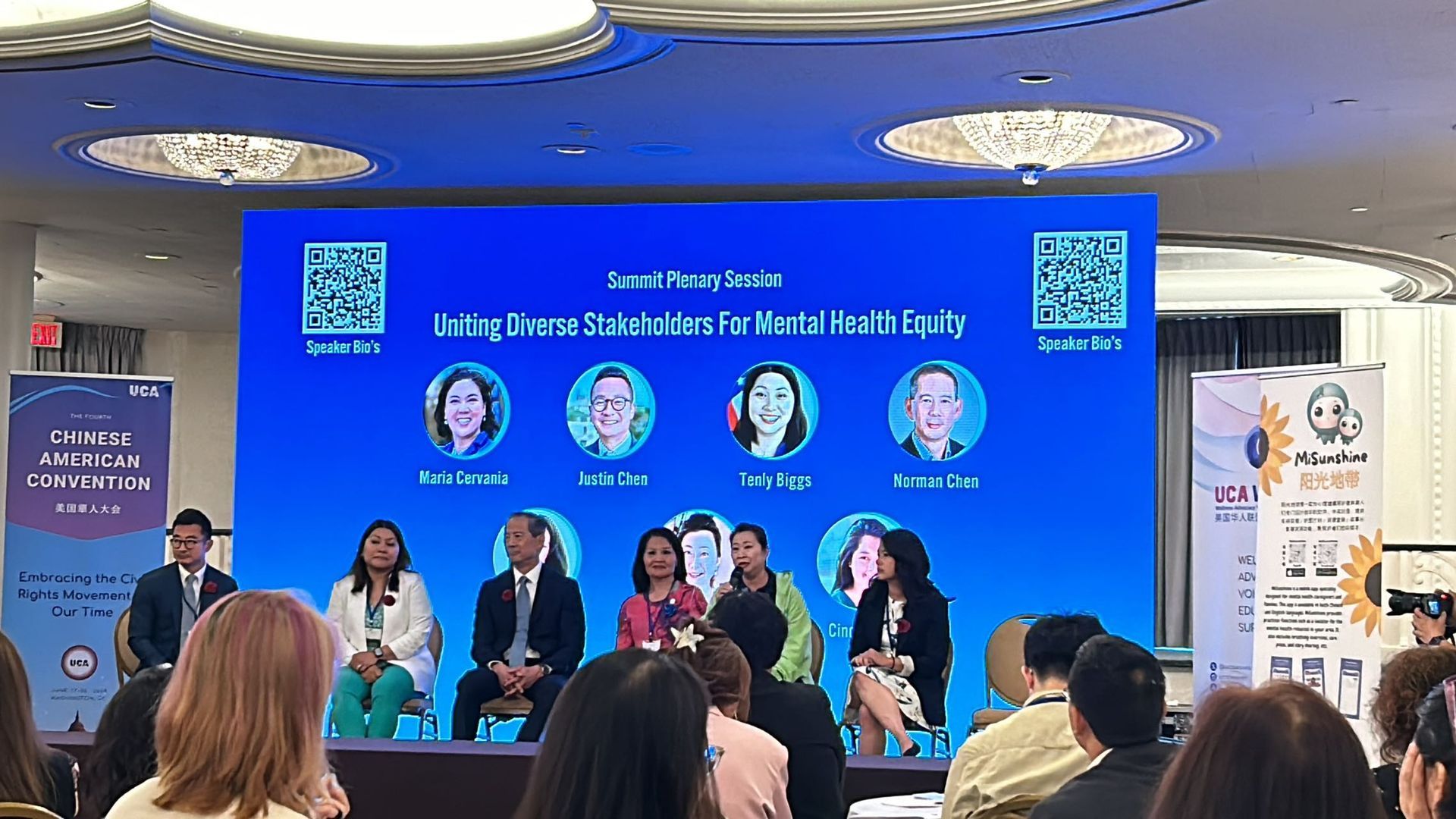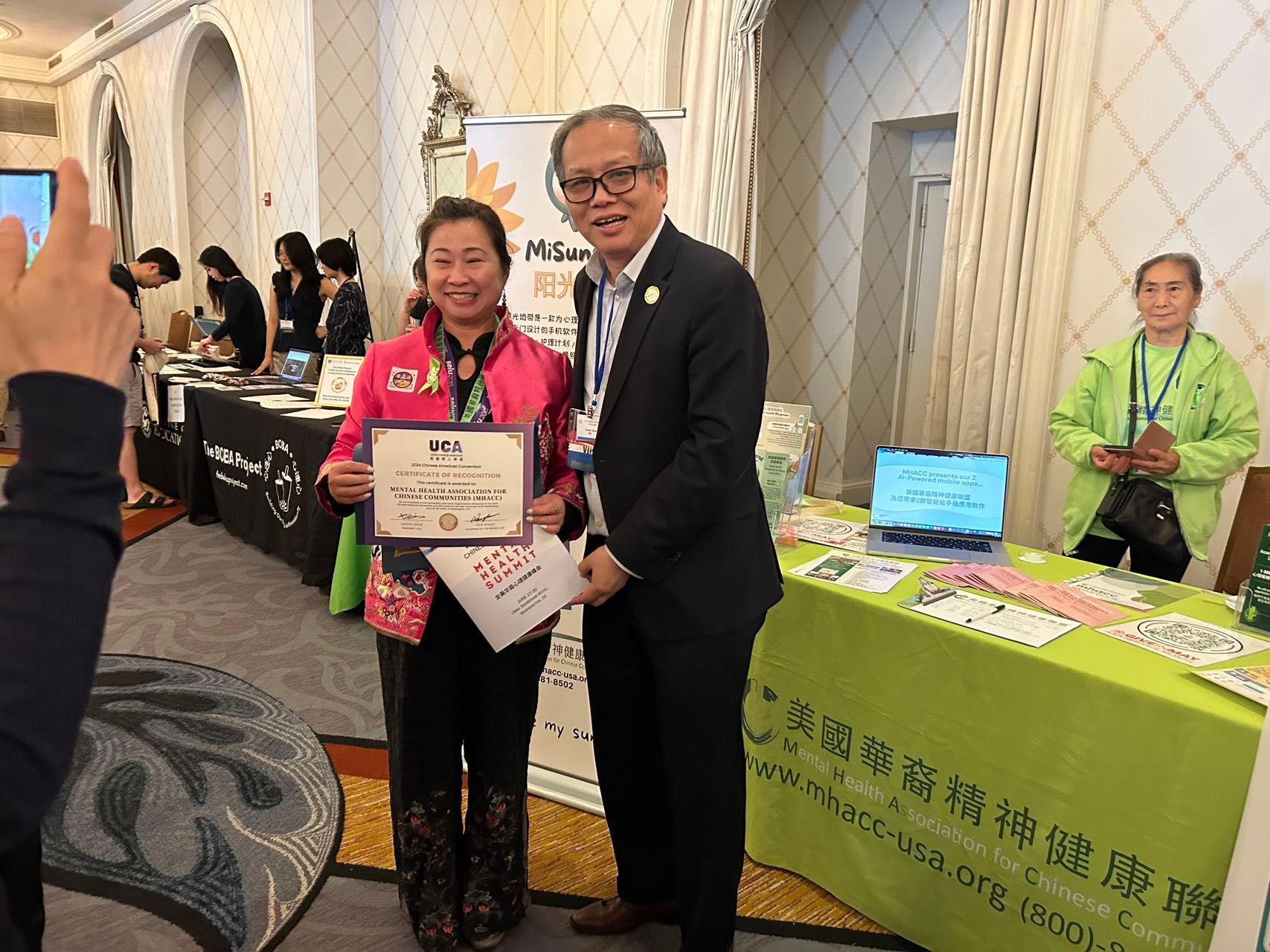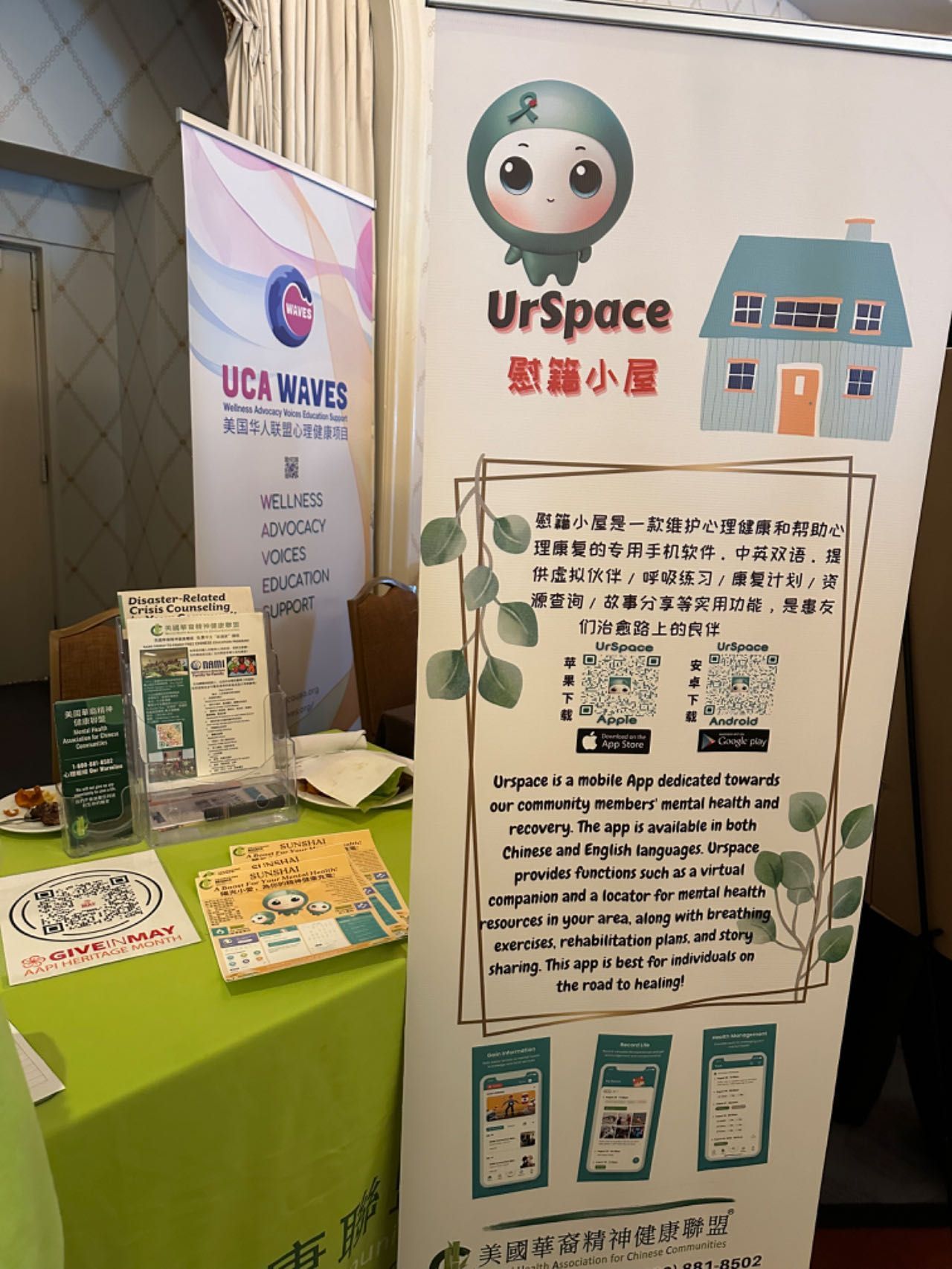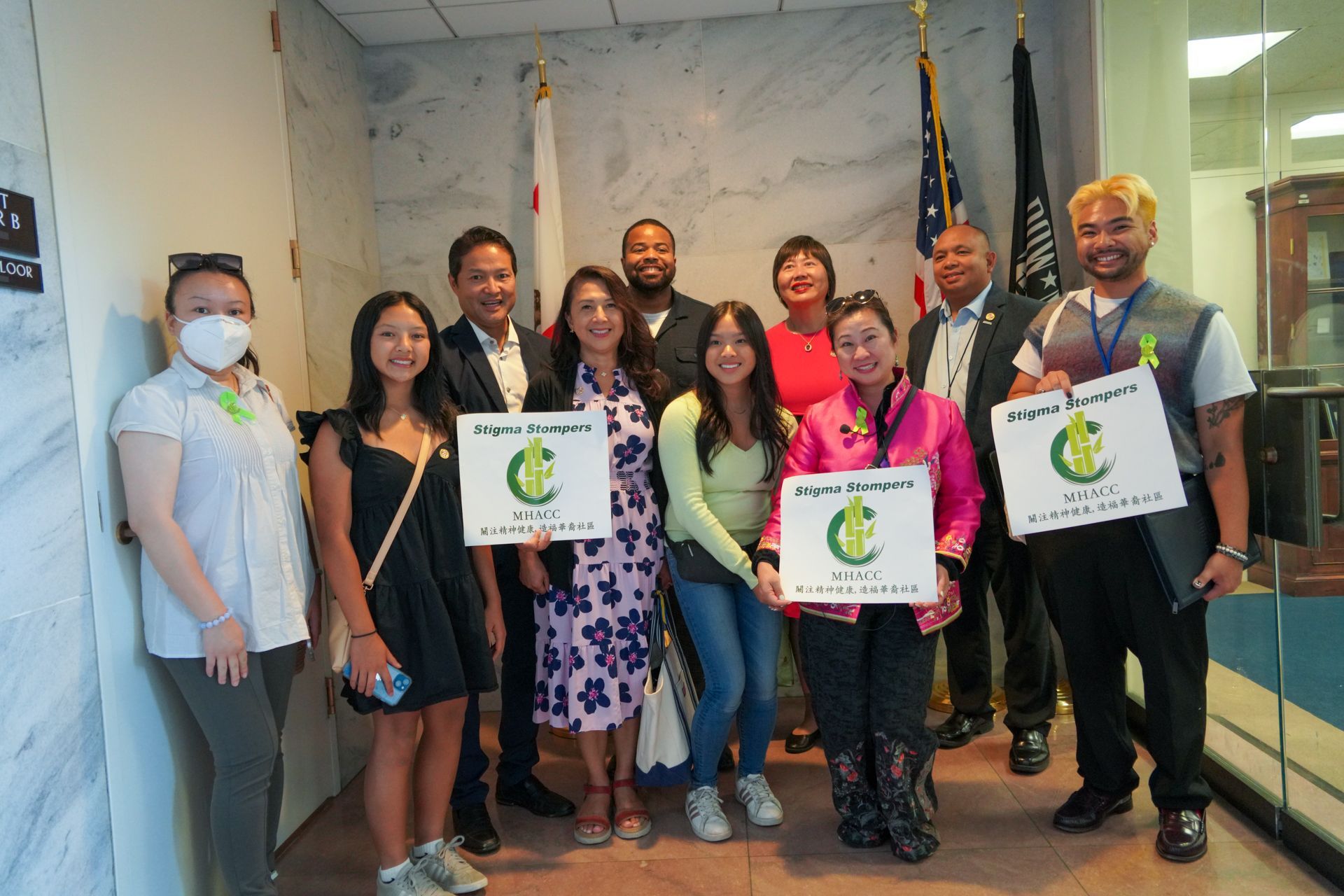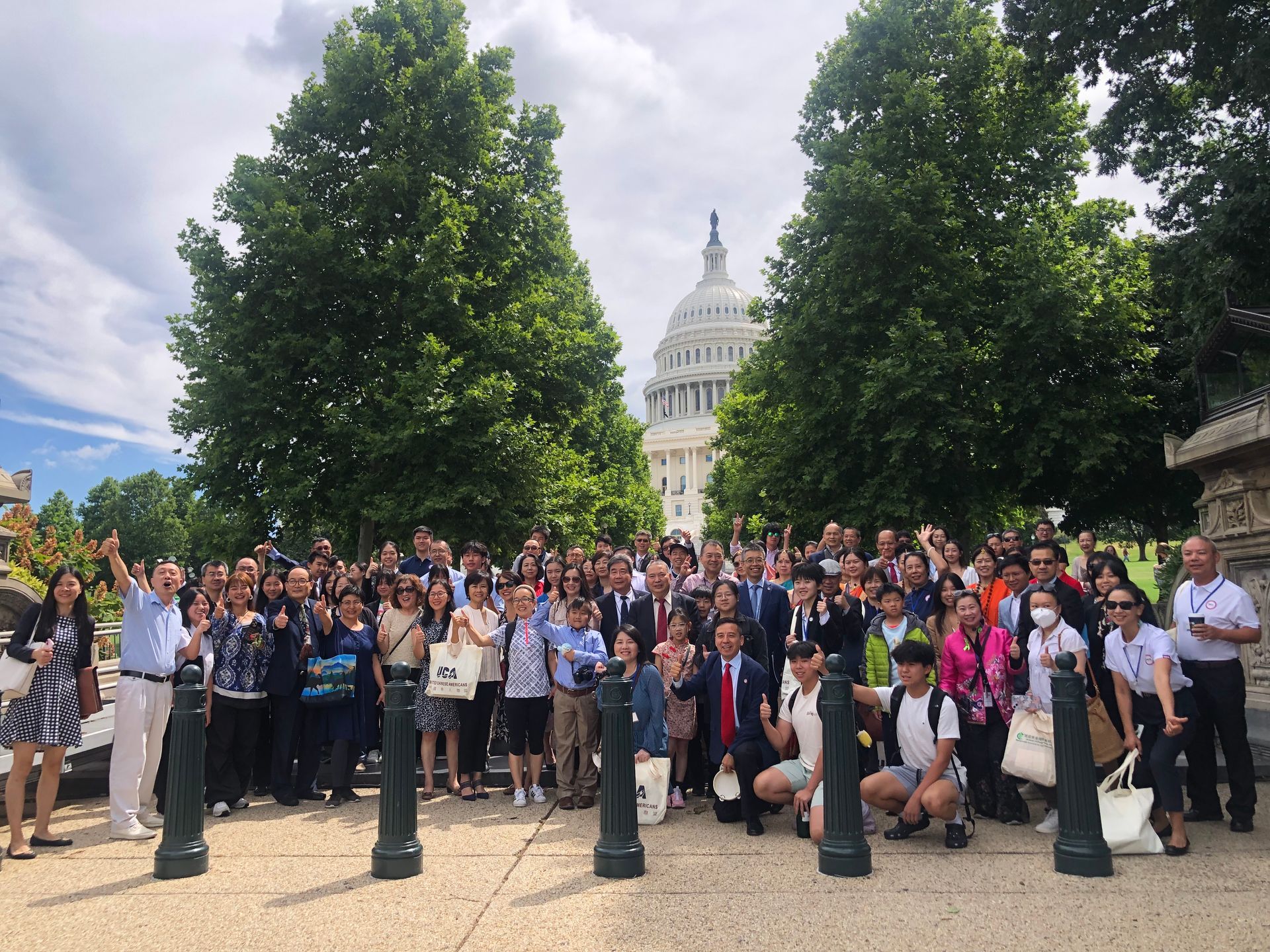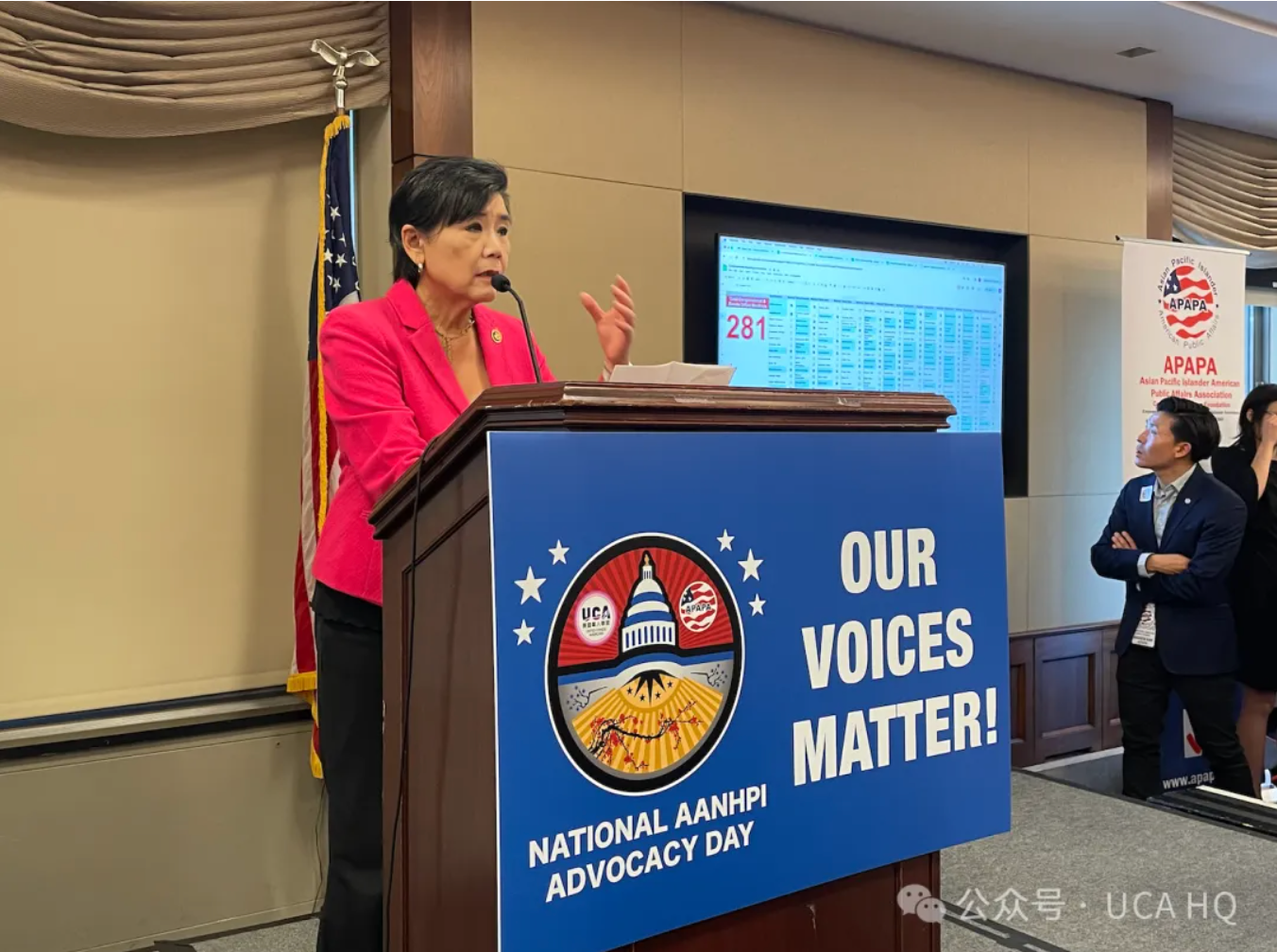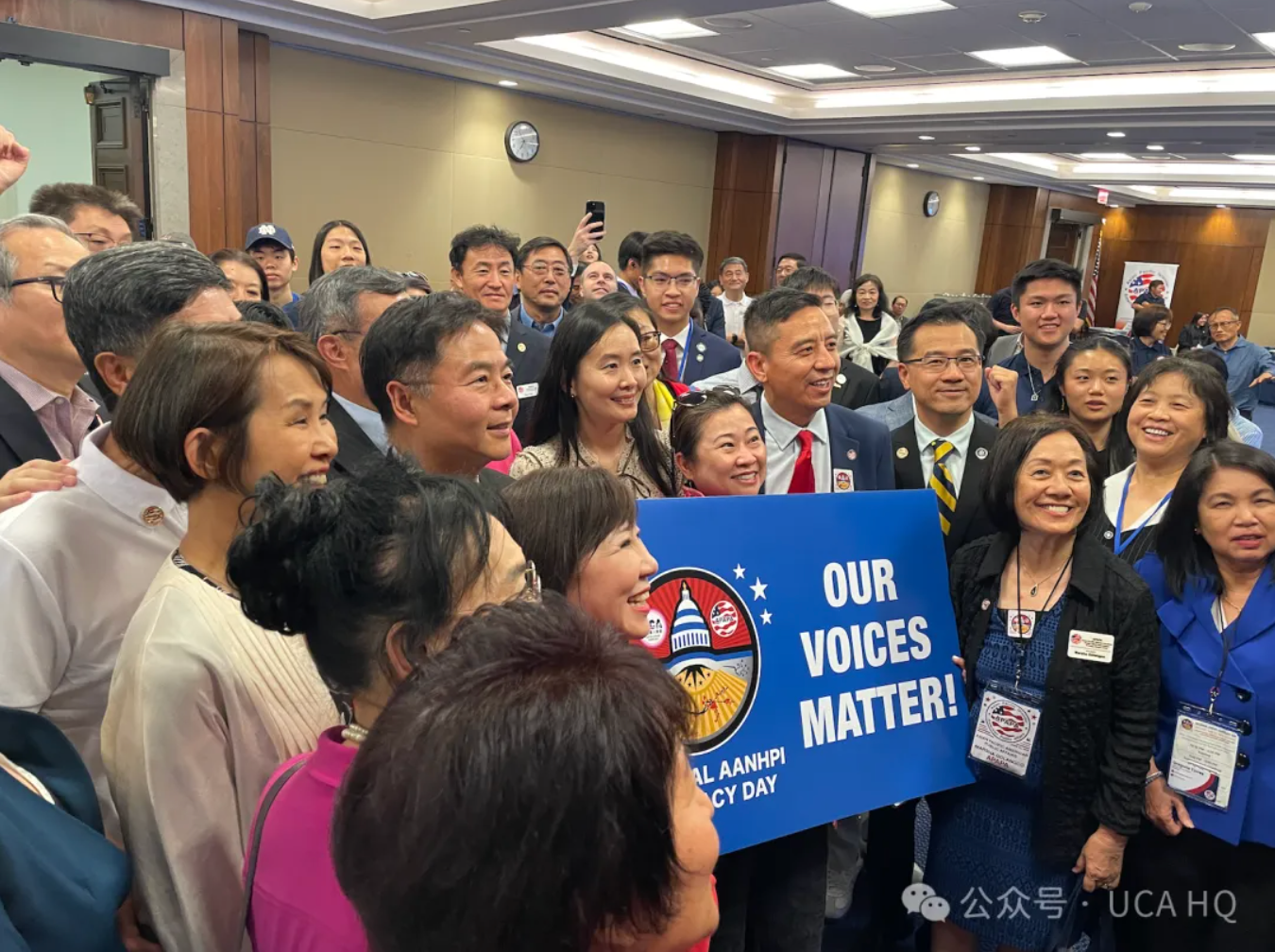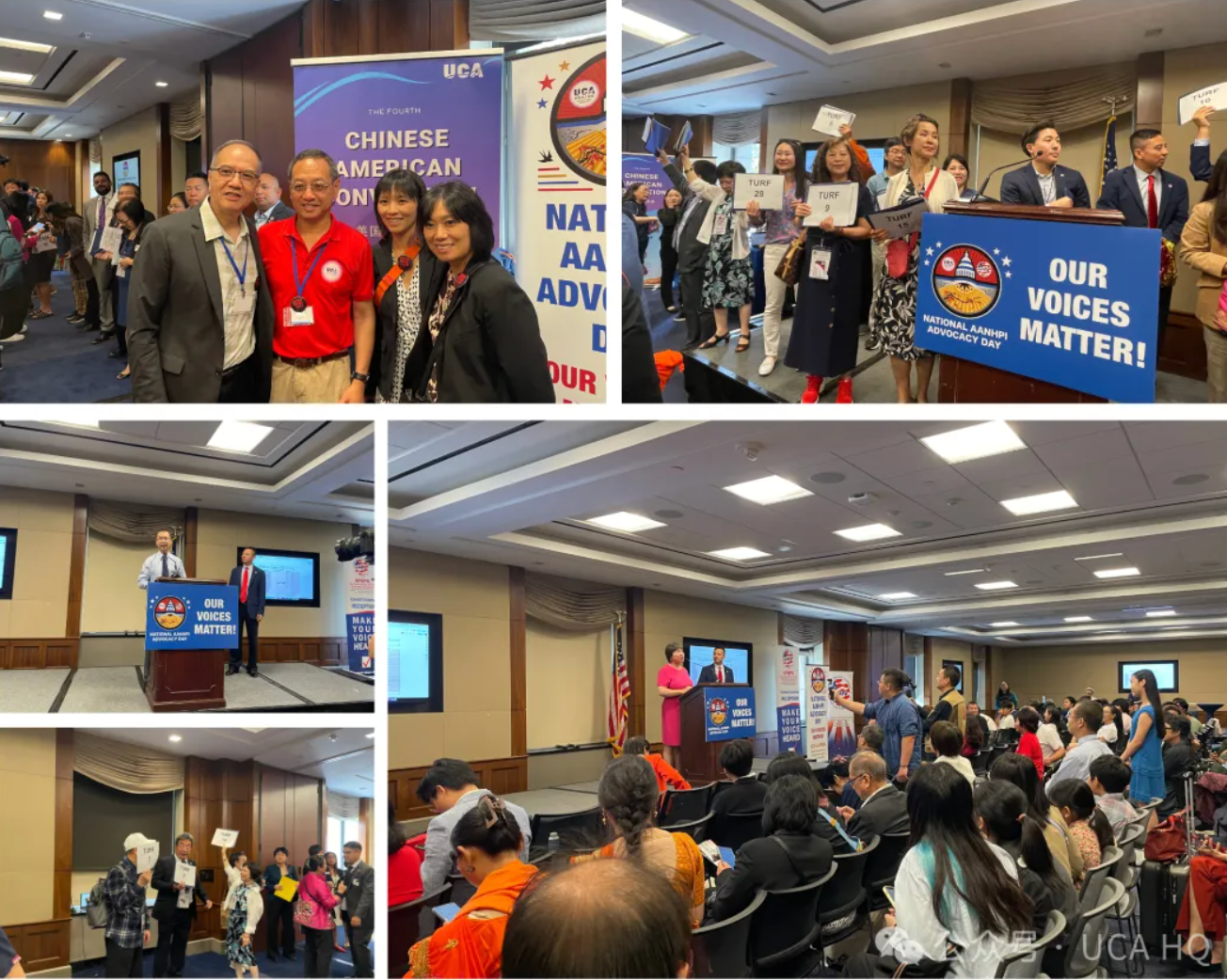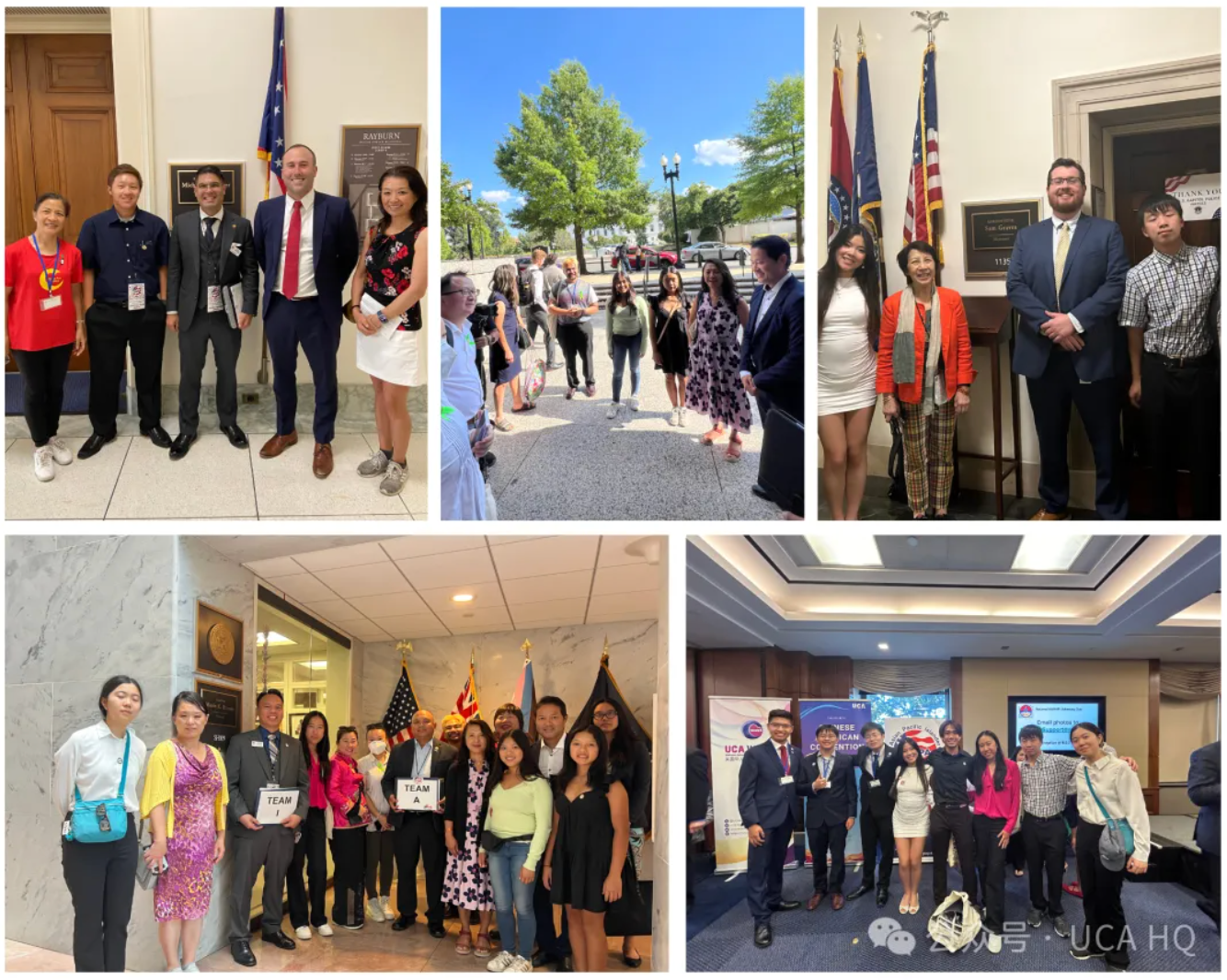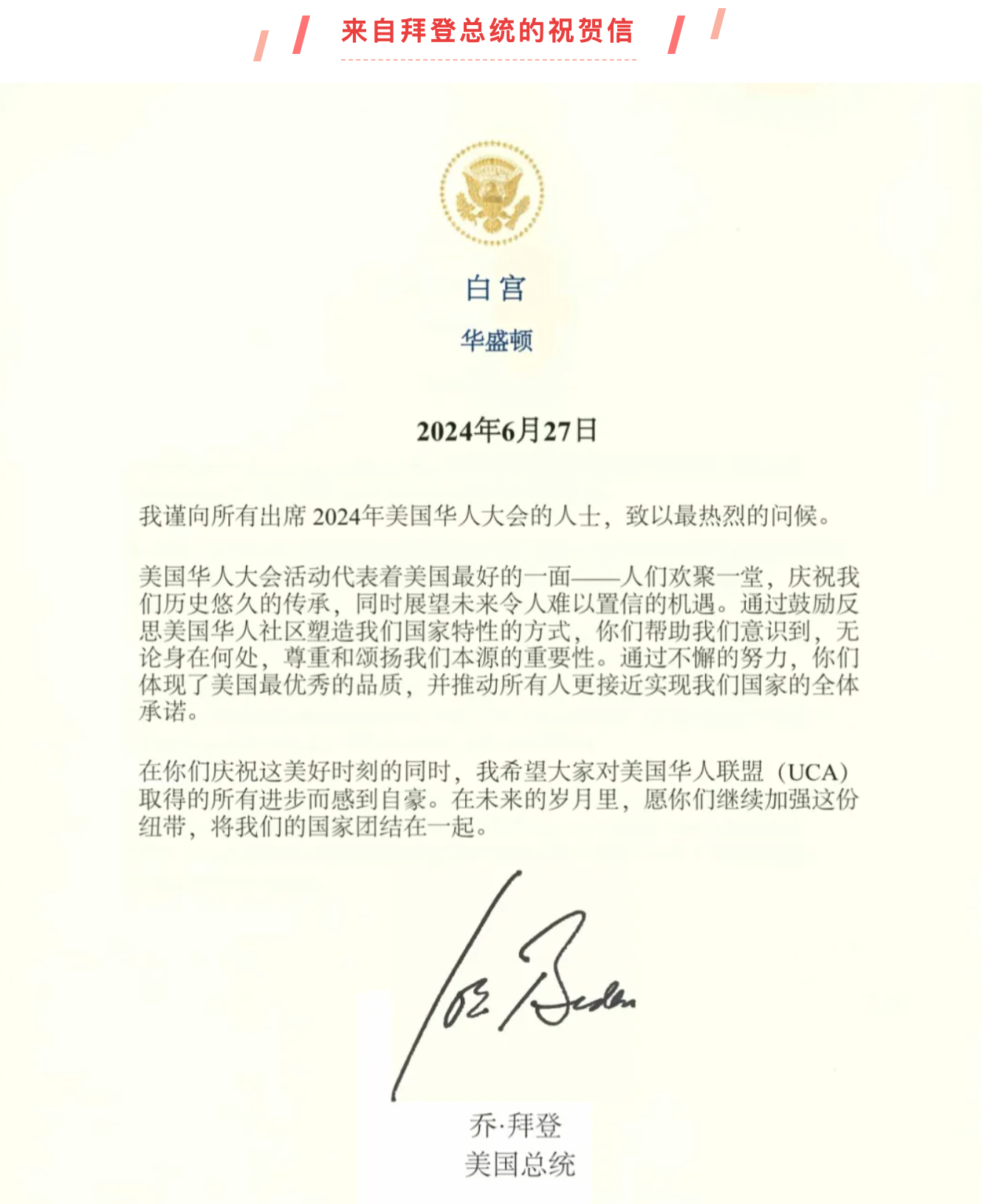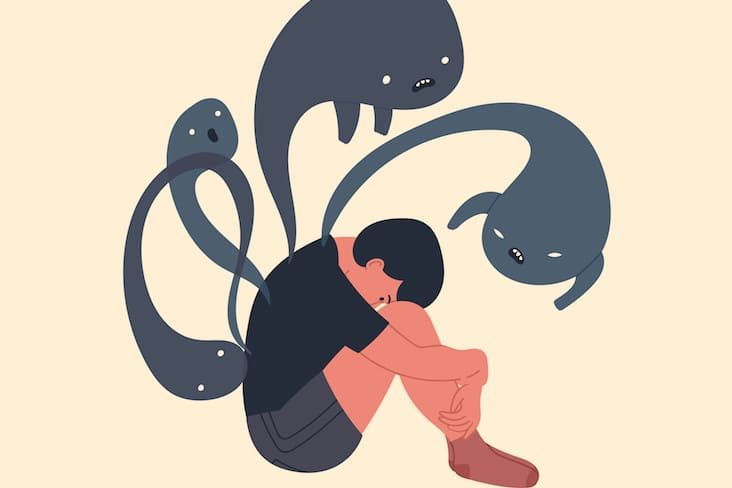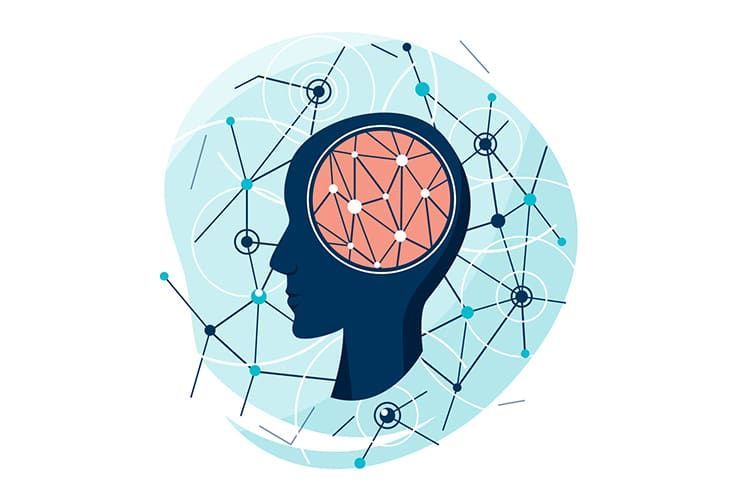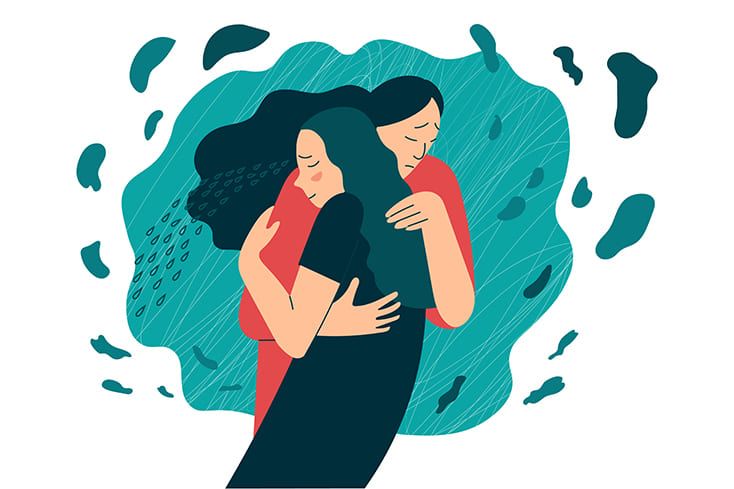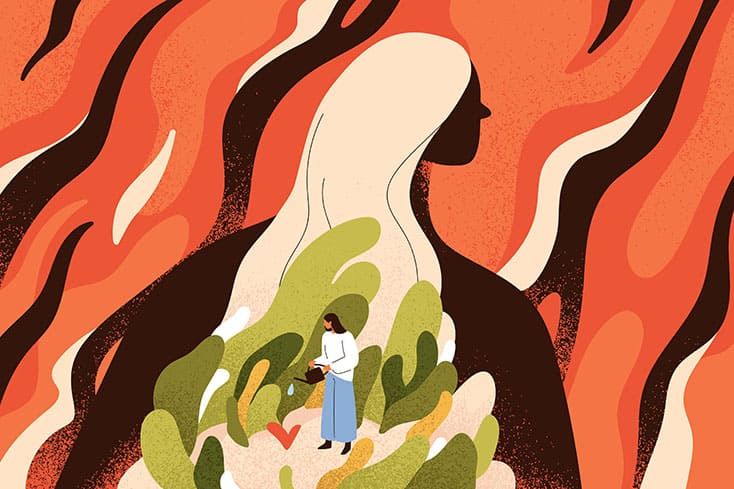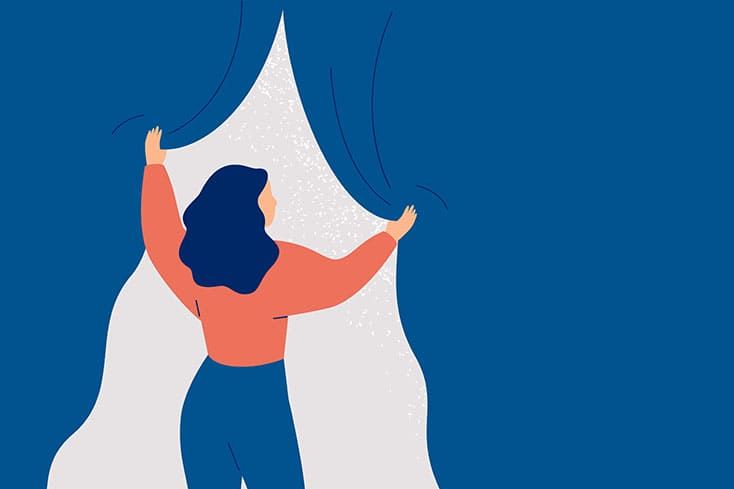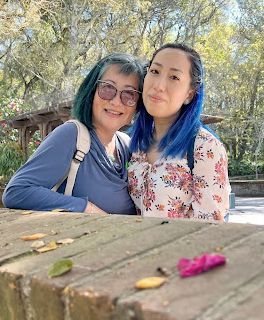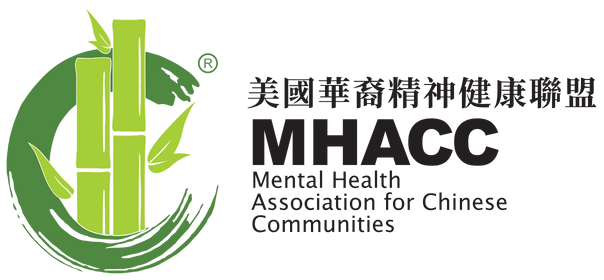全美華裔心理健康峰會| National Mental Health Summit | June 2024
06/27-06/30 首屆全美華裔心理健康高峰會在華盛頓特區成功舉辦
Chinese American Mental Health Summit Successfully Held in Washington, D.C.
Scroll Down for an English version ⬇️
2024年6月27日至30日,作為美國華人聯盟(UCA)2024年美國華人大會的重要組成部分,由UCA WAVES和美國華裔精神健康聯盟(MHACC)共同主辦的全美華裔心理健康高峰會在華盛頓特區成功舉行。這次峰會匯聚了來自全國各地的華裔社區組織、心理健康專業人士、政府部門代表以及主流機構的影響力人士,共同探討華裔美國人心理健康的關鍵議題。
此次高峰會不僅是華人社區組織和華裔心理健康組織在全國性平台上展示項目的難得機會,更是一個促進跨部門對話、分享最佳實踐經驗的重要平台。與會者們就當前華裔社區面臨的心理健康挑戰、創新服務模式以及未來發展方向進行了深入討論。
值得一提的是,拜登總統特別為2024年美國華人大會發來賀信,肯定了這個活動的重要性。
國會日活動(6月27日)
第一天是 "國會日",為了呼應本次華人大會的主題「擁抱新時代民權運動」。600多個亞裔社區代表分成50多個小組,訪問了281個參眾兩院議員辦公室,占議員總數的50%以上。代表們表達了社區關切的問題,包括精神健康服務、購房法案,以及將華裔歷史納入美國歷史課程的倡議等。
聯邦眾議員趙美心(Judy Chu)表示:「亞裔讓國會和各界知道了我們的存在,讓人們聽到了華裔和亞裔的聲音。」
國會山活動共同主席、MHACC執行長彭一玲(Elaine Peng)重點介紹了H.R. 7924法案,該法案旨在推進精神健康領域的文化適宜性和公平支持服務。彭一玲解釋道,這項法案的目標是通過擴大少數族裔服務機構的專業培訓計劃,來增加精神健康工作隊伍的多樣性。多元化的員工隊伍有助於減少語言和文化障礙,從而提高少數群體獲得精神健康服務的機會和效果。
(詳見世界日報報導:https://www.worldjournal.com/wj/story/121472/8062271?from=wj_breaknews_index)
峰會討論要點(6月28-29日)- 挑戰和機遇
- 心理健康污名化:紐約長老會醫院副主任陳志佳(Justin Chen)指出,對心理健康的污名化仍然是一個重要挑戰。
- 資金不足:UCA WAVES執行總監陳健(Lily Chen)強調,資金缺乏是最常見的挑戰,但社區機構必須迅速應對緊急的精神健康危機。
- 研究經費短缺:哈佛醫學院助理教授劉欣如(Cindy H.Liu)指出,NIH在亞裔健康研究方面的經費僅占總預算的8.17%。
- 多方面挑戰:MHACC執行長彭一玲(Elaine Peng)指出了幾個關鍵挑戰:
- 建立信任:服務組織如何讓社區成員產生信任。
- 教育和宣導:如何針對來自不同背景、甚至尚未認識到精神健康重要性的民眾進行教育,幫助他們識別精神健康問題的跡象。
- 資源缺乏:例如很難找到合格的中文翻譯。
- 數據不足:缺少相關數據,難以檢驗和調整服務策略。
彭一玲呼籲:"當我們有一顆善良的心,想為社區工作時,卻不知道這樣做到底對不對?很希望研究機構、大學能分享數據。"
(詳見世界日報報導:https://www.worldjournal.com/wj/story/121472/8063708?from=wj_maintab_cate)
交流與合作
在峰會中,包括MHACC在內的多個組織進行了精彩的演講,介紹了各自在華裔心理健康領域的服務內容和經驗。這些分享不僅展示了各組織的獨特視角和方法,也為與會者提供了寶貴的借鑒機會,更為未來的工作指明了方向。
值得一提的是,MHACC開發的兩款手機軟件被指定為大會官方使用的精神健康護理專用軟件。這些軟件為使用者提供了便捷的心理支持和資源獲取等功能,展示了科技在心理健康中的重要作用,提升了服務的可及性和有效性。
展望未來
展望未來,與會者一致認為,增加數據收集、提高公眾意識、加強跨部門合作,以及充分利用科技創新將是未來工作的重點。
MHACC和其他參與組織將繼續努力,推動相關立法,並致力於消除心理健康領域的文化障礙,打造一個更包容的社會,為華裔美國人提供更好的精神健康服務。
結語
6月30日,在峰會的最後一天,近300位來自美國34個州和大華府本地的華人同胞在華盛頓特區舉行了首次華人組織的大型民權步行活動,紀念《1964民權法》生效60周年。步行活動與心理健康高峰會相呼應,進一步強調了華裔社區在美國社會中爭取平等權利和機會的重要性,包括在心理健康服務方面獲得公平對待的權利。
這次高峰會和隨後的步行活動不僅展現了美國華人對美國建國理念的認同,也體現了華裔社區對於爭取平等權益的決心。通過這樣的活動,華裔社區進一步凝聚力量,為未來在心理健康等各個領域的發展奠定了堅實基礎。
Chinese American Mental Health Summit Successfully Held in Washington, D.C.
From June 27 to 30, 2024, the National Chinese American Mental Health Summit was successfully held in Washington, D.C., as a crucial component of the 2024 United Chinese Americans (UCA) Convention. Co-hosted by UCA WAVES and the Mental Health Association for Chinese Communities (MHACC), this summit brought together Chinese community organizations, mental health professionals, government representatives, and influential figures from mainstream institutions nationwide to discuss key mental health issues affecting Chinese Americans.
This summit not only provided a rare opportunity for Chinese community organizations and mental health groups to showcase their projects on a national platform but also served as an important forum for cross-sector dialogue and sharing of best practices. Participants engaged in in-depth discussions on current mental health challenges in the Chinese community, innovative service models, and the direction of future development.
Notably, President Biden sent a congratulatory letter to the 2024 UCA National Convention, affirming the important contributions of this event.
Congressional Day Activities (June 27)
The first day was "Congressional Day," echoing the convention's theme of "Embracing the New Era of Civil Rights Movement." Over 500 Asian American community representatives, divided into more than 50 groups, visited 281 Congressional offices, representing over 50% of all members of Congress. The representatives expressed community concerns, including mental health services, housing legislation, and initiatives to incorporate Chinese American history into U.S. history curricula.
Congresswoman Judy Chu stated, "Asian Americans have made their presence known to Congress and the public, ensuring that Chinese and Asian voices are heard."
Elaine Peng, co-chair of the event and Executive Director of MHACC, highlighted H.R. 7924, a bill aimed at advancing cultural competence and equitable support services in the mental health field. Peng explained that the bill's goal is to increase diversity in the mental health workforce by expanding professional training programs in minority-serving institutions. A more diverse workforce helps reduce language and cultural barriers, thereby improving access to and effectiveness of mental health services for minority groups.
Summit Discussion Highlights (June 28-29) - Challenges and Opportunities
- Mental Health Stigma: Dr. Justin Chen, Deputy Director at New York-Presbyterian Hospital, pointed out that stigma around mental health remains a significant challenge.
- Funding Shortages: Lily Chen, Executive Director of UCA WAVES, emphasized that while lack of funding is the most common challenge, community organizations must respond swiftly to urgent mental health crises.
- Research Funding Deficiency: Dr. Cindy H. Liu, Assistant Professor at Harvard Medical School, noted that NIH funding for Asian health research accounts for only 8.17% of its total budget.
- Multifaceted Challenges: Elaine Peng, Executive Director of MHACC, highlighted several key challenges:
- Building Trust: How service organizations can gain community members' trust.
- Education and Advocacy: How to educate people from diverse backgrounds, including those who may not recognize the importance of mental health, and help them identify signs of mental health issues.
- Resource Scarcity: For example, the difficulty in finding qualified Chinese translators.
- Data Insufficiency: Lack of relevant data that makes it challenging to evaluate and adjust service strategies.
Peng appealed, "When we have good intentions to work for the community, how do we know if we're doing the right thing? We hope research institutions and universities can share their data."
Exchange and Collaboration
During the summit, multiple organizations, including MHACC, delivered compelling presentations, introducing their services and experiences in the field of Chinese American mental health. These sharing sessions not only showcased each organization's unique approaches, but also provided valuable learning opportunities for attendees that will direct their future work.
Notably, two mobile apps developed by MHACC were designated as the official mental health care apps for the convention. These apps offer users convenient access to self-care tools and resources, showcasing the significant benefits of integrating technology with mental health services.
Looking Ahead
Looking to the future, participants unanimously agreed that increasing data collection, raising public awareness, strengthening cross-sector collaboration, and fully leveraging technological innovations would be key priorities. All of these objectives can greatly enhance the accessibility and effectiveness of mental health services.
MHACC and other participating organizations will continue their efforts to promote relevant legislation and work towards eliminating cultural barriers in the mental health field, aiming to build a more inclusive society and provide better services for Chinese Americans.
Conclusion
On June 30, the final day of the summit, nearly 300 Chinese Americans from 34 states and the Greater Washington area participated in the first large-scale civil rights walk. It was organized by the Chinese community in Washington, D.C. in order to commemorate the 60th anniversary of the Civil Rights Act of 1964. This walk, resonating with the mental health summit, further emphasized the Chinese American community's pursuit of equal rights and opportunities in American society, including the right to fair treatment in mental health services.
Ultimately, the event not only demonstrated Chinese Americans' identification with America's founding ideals, but also reflected the Chinese community's intense determination to strive for equal rights. Through such activities, the Chinese American community further consolidated its strength, laying a solid foundation for future development in mental health and related fields.


